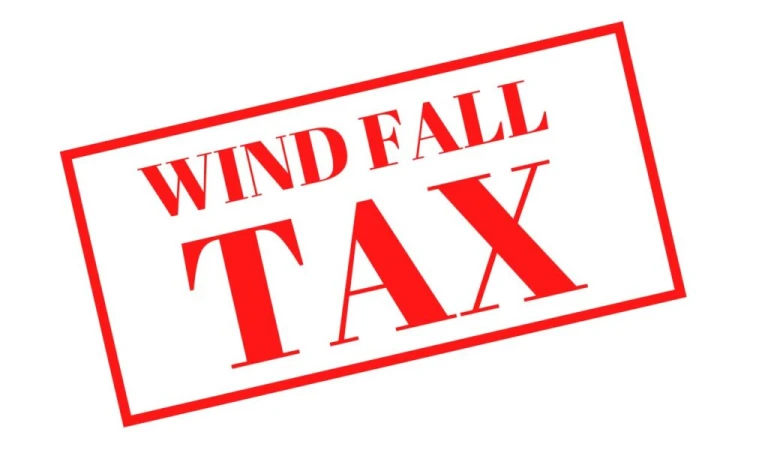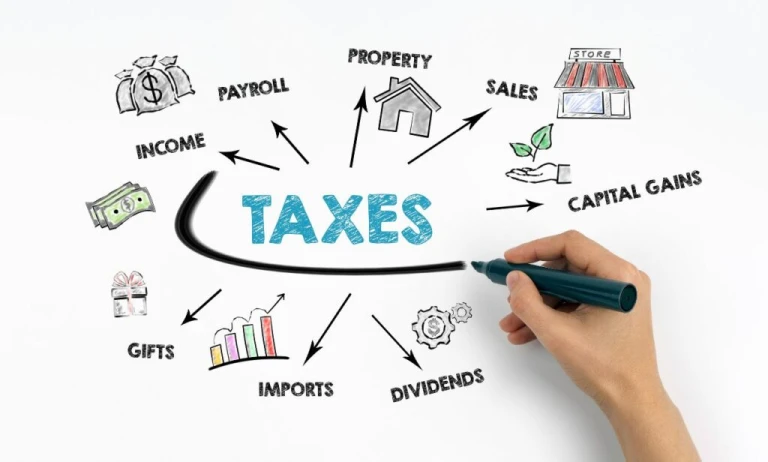What is Windfall Tax and how it applies in India?

What is a Windfall Tax?
A windfall tax is a special tax that is levied on a company or individual when they receive sudden and unexpected profits. It is typically used to discourage activities that are harmful to the public interest, such as price gouging or environmental pollution.

Example
There are many examples of a windfall tax. However, some of the most common ones include taxes on inherited wealth, lottery winnings, and gifts. Inherited wealth is often subject to a windfall tax. It is imposed to prevent people from passing on their riches to their children without paying any tax on it. Lottery winnings are commonly taxed as a windfall because they are “unearned” income. Finally, gifts are often subject to windfall tax to prevent people from using them as a way to avoid paying taxes on their income.
The amount of the tax varies depending on the country, but it is usually a percentage of the total windfall. For example, in the United States, the federal government imposes a 40% windfall tax on lottery winnings over $5 million. In France, the government imposes a 60% windfall tax on inheritances over €1 million.
What are the countries that implemented windfall tax?
The UK and Italy are two important economies that have imposed a windfall tax.
- Italy announced that it would tax the profits of energy companies at 25%. In order to help pay for a package of support for consumers and businesses whose energy costs have skyrocketed.
- The United Kingdom will raise its headline tax rate on profits arising after May 26, 2022, from 40% to 65%.
- India, Venezuela, Ecuador, Bolivia, and Argentina all have experienced increases in the price of oil, which has led to increased profits for oil companies operating within their borders. To prevent these companies from pocketing all of the windfall profits, the governments of these countries have implemented windfall taxes.
Windfall taxes typically range from 10-50%, depending on the country. In India, the windfall tax rate is 20%. This means that for every $100 in unanticipated profits that an oil company makes, it must pay $20 to the government.
The purpose of windfall taxes is to ensure that natural resource companies do not unduly benefit from increases in the prices of their resources. By implementing these taxes, governments can ensure that extractive industries share the wealth generated by their activities with the people of their countries.
Why are countries imposing windfall taxes?
Windfall taxes are usually imposed by governments on sectors that have experienced a sudden and dramatic increase in profits. The most common examples are natural resources, such as oil, gas, and minerals.
The main reason for imposing windfall taxes is to redistribute the wealth that has been generated in a way that benefits the wider population, rather than just a select few. This can help to reduce inequality and improve social welfare.
The revenue from windfall taxes is used to fund public services or investment projects that can boost economic growth. For example, in India, the government has used windfall tax revenue from the telecoms sector to fund its rural electrification program.
There are also some environmental benefits associated with windfall taxes. By discouraging resource extraction and consumption, they can help to reduce greenhouse gas emissions and other pollution.
Why does India impose a windfall tax on oil producers in July 2022?
In July of 2022, India imposed a windfall tax on oil producers in an effort to curb the high price of crude oil. The tax was imposed on all companies that produce oil in India, including both domestic and foreign firms. The rate of the tax was set at 20% of the sale price of crude oil. And also, it was applied to all sales of crude oil from July 1st through September 30th.
The purpose of this tax was to raise revenue for the government. So that it could offset the high cost of crude oil imports. India is one of the world’s largest importers of crude oil. The high prices have been a burden on the country’s economy. The tax is expected to raise about $2 billion for the government.
The windfall tax has been criticised by some as being unfair to domestic producers. And it i likely to cause them to reduce investment in India’s oil sector. However, others argue that the tax is necessary in order to keep prices down for consumers and help reduce India’s dependence on imported oil.

What are the Benefits of a windfall tax?
- When the government imposes a windfall tax on a company, it is essentially levying a charge for the “unfair” profits that the company has made. The rationale behind this is that these profits have been generated due to external factors beyond the company’s control, such as an increase in global oil prices.
- The main benefit of a windfall tax is that it helps to level the playing field between different companies. For example, if Company A is making excessive profits due to an increase in global oil prices, then the windfall tax will help bring Company A’s profits more in line with those of other companies that have not affected by the same external factors.
- In addition, a windfall tax is one of the way to raise revenue for the government. This can be particularly useful in times of economic difficulty. When traditional sources of revenue, such as income taxes, are not performing as well as expected.
- Finally, some proponents argue that this tax can help to discourage risky behaviour by companies. For example, if a company knows there are heavy taxes on any profits that it makes from speculation, then this may dissuade the company from engaging in such activities.
What are the Drawbacks of a Windfall tax?
- It can discourage companies from making investments that may lead to windfalls.
- The tax can reduce the amount of money available for other investments and economic activity.
- It can be difficult to administer and collect, especially if the windfall is not predictable.
- It may be unfair to some companies whose success is due to factors beyond their control.









